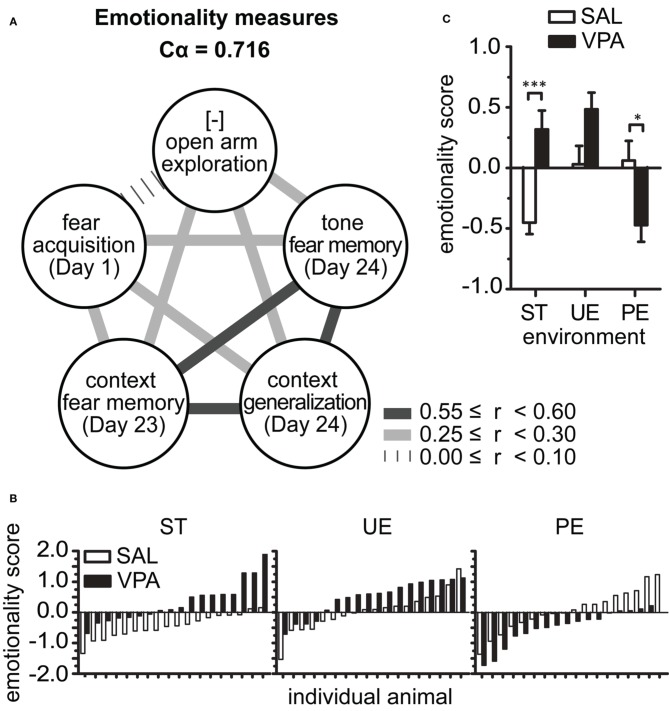Figure 2.
Predictable enrichment reduces multivariate emotionality score in VPA group. (A) Multivariate analysis identified 5 measures, representative of emotionality, with high (>0.7) Cronbach's alpha coefficient of internal consistency, which was computed from Pearson's correlation coefficients of z-transformed measures (mean r = 0.335). [-] denotes inverted scale, such that z-scores above zero represent high vigilance in EPM test and can be interpreted as increasing emotionality. (B) The emotionality score calculated as average of the 5 measures in (A), per rat. (C) Group mean ± s.e.m. emotionality score indicated drastically opposite effects of environment on SAL and VPA: PE but not UE was required for VPA group to show reduced emotionality. Sample sizes: SAL nST = 18, nUE = 18, nPE = 18; VPA nST = 18, nUE = 18, nPE = 17. Asterisks denote significant VPA × SAL mean comparisons, Bonferroni corrected, *p < 0.05, ***p < 0.001. VPA, valproic acid; SAL, saline; ST, standard environment; UE, unpredictably enriching environment; PE, predictably enriching environment.

